Introduction:
In the dynamic world of fitness and exercise, individuals are constantly seeking ways to optimize their performance and push their limits. For many, pre workout supplements have become a popular choice to enhance energy levels, focus, and endurance during training sessions. As fitness enthusiasts delve into the realm of pre workout supplementation, a crucial question arises: “How long does pre workout last?”
In this article, we will embark on an insightful journey into the world of pre workout supplements, dissecting the various factors that contribute to the duration of their effects. From the science behind common ingredients to individual variances and optimal timing, we’ll unravel the mysteries surrounding pre workout duration. By the end of this exploration, you’ll be equipped with the knowledge to make informed decisions about when and how to incorporate pre workout supplements into your fitness regimen. Let’s delve into the intricacies of “how long does pre workout last” and unlock the secrets to maximizing your pre-training boost.
Section 1: What is Pre Workout?
Pre-workout supplements are a category of nutritional products specifically formulated to enhance physical performance, energy levels, and mental focus during exercise. These supplements are designed to be taken before a workout session, hence the name “pre workout.” Understanding what pre workout is and its intended purpose is crucial for individuals aiming to optimize their training routines.
Definition and Purpose of Pre Workout Supplements:
At its core, a pre workout supplement is a blend of various ingredients carefully selected to provide a synergistic effect that supports and enhances the physiological processes involved in physical activity. The primary purpose is to offer a boost in energy, improve endurance, and sharpen mental focus, ultimately leading to more effective and productive workout sessions.
Individuals often turn to pre workout supplements to overcome fatigue, increase exercise intensity, and sustain peak performance throughout their training. Whether you’re an athlete, bodybuilder, or someone engaging in regular fitness activities, pre workout supplements aim to elevate your exercise experience by addressing the limitations that may arise during intense physical exertion.
Common Ingredients and Their Roles:
Pre workout supplements contain a diverse array of ingredients, each chosen for its specific role in enhancing performance. Understanding these common ingredients provides insight into the mechanisms behind the pre workout experience. Here are some key components frequently found in pre workout formulations:
- Caffeine:
- Role: Acts as a stimulant to reduce perceived effort, increase alertness, and enhance overall physical performance.
- Effect: Boosts energy levels and mental focus.
- Beta-Alanine:
- Role: Amino acid that helps buffer lactic acid, reducing muscle fatigue and supporting endurance.
- Effect: May cause a tingling sensation (paresthesia) and contributes to improved workout capacity.
- Nitric Oxide Boosters (e.g., Arginine, Citrulline):
- Role: Enhance blood flow by increasing nitric oxide production, leading to improved nutrient and oxygen delivery to muscles.
- Effect: Supports better muscle pump, nutrient uptake, and overall endurance.
- Creatine:
- Role: Provides quick energy for high-intensity activities by replenishing ATP stores.
- Effect: Enhances strength, power, and recovery.
- B-Vitamins:
- Role: Essential for energy metabolism and overall cellular function.
- Effect: Supports energy production and reduces fatigue.
Section 2: The Mechanics of Pre Workout Duration
To comprehend the duration of pre workout effects, it’s crucial to delve into the intricate mechanics that govern how these supplements interact with the body. Numerous factors come into play, influencing how long the effects last and determining the overall impact on physical and mental performance.
Factors Influencing How Long Pre Workout Lasts:
- Individual Tolerance:
- The response to pre-workout supplements varies widely among individuals. Tolerance levels, influenced by factors such as genetics, previous stimulant exposure, and overall health, play a pivotal role. Individuals with a higher tolerance may experience a shorter duration of effects, requiring larger doses for a noticeable impact.
- Sensitivity to Stimulants:
- Pre-workout supplements often contain stimulants like caffeine to boost energy and focus. Sensitivity to stimulants varies, and individuals who are more sensitive may feel the effects more intensely and for a longer duration. Conversely, those with a higher tolerance might experience a quicker decline in the impact.
- Health Conditions:
- Underlying health conditions can affect how the body processes and responds to pre-workout ingredients. Individuals with cardiovascular issues, metabolic disorders, or other health concerns may experience different durations and intensities of pre-workout effects.
- Dosage and Ingredients:
- The specific formulation and dosage of a pre-workout supplement significantly impact its duration. Ingredients like caffeine, for instance, have a dose-dependent effect. Additionally, the combination of ingredients and their synergistic interactions contribute to the overall efficacy and longevity of the supplement’s effects.
Understanding these factors provides a foundation for predicting and optimizing the duration of pre-workout effects. It’s essential to recognize that individual differences play a pivotal role, and what works well for one person may not necessarily be the same for another.
Individual Variances:
Beyond the general factors mentioned, individual variances in metabolism, body composition, and even psychological factors can influence how long pre-workout effects last. Some individuals may metabolize certain ingredients more rapidly, leading to a shorter duration of effects, while others may experience a more prolonged impact.
As we proceed through this exploration, we’ll further dissect the roles of specific ingredients and delve into strategies for optimizing pre-workout duration. By gaining a comprehensive understanding of the mechanics at play, you’ll be better equipped to tailor your pre-workout routine to align with your unique physiology and fitness objectives.
Section 3: Common Ingredients and Their Duration:
One of the key determinants of how long pre-workout effects last lies in the specific ingredients present in these supplements. Each ingredient plays a distinct role in influencing energy levels, focus, and endurance during exercise. By examining the common components and their respective durations, we can gain valuable insights into the temporal dynamics of pre-workout supplementation.
Caffeine: How Long Does the Caffeine Boost Last?
Caffeine is a ubiquitous ingredient in pre-workout supplements, known for its stimulant properties. It acts on the central nervous system, reducing the perception of effort and fatigue while enhancing alertness. The duration of caffeine’s effects can vary based on individual factors and dosage:
- Duration: On average, the effects of caffeine start to kick in within 15 to 45 minutes after consumption, peaking around 1 to 2 hours. However, caffeine has a half-life of approximately 3 to 5 hours, meaning that it takes this amount of time for the body to eliminate half of the caffeine. As a result, the stimulant effects may linger for several hours, and individuals may experience a gradual decline in energy rather than an abrupt crash.
Beta-Alanine: Understanding the Tingling Sensation
Beta-alanine is an amino acid that plays a crucial role in buffering lactic acid, thereby reducing muscle fatigue and supporting endurance. While it doesn’t directly contribute to a prolonged feeling of energy, the tingling sensation often associated with beta-alanine can impact the overall pre-workout experience:
- Duration: The tingling sensation, known as paresthesia, typically occurs within 15 to 30 minutes after consuming a pre-workout supplement containing beta-alanine. This sensation is harmless and temporary, subsiding as beta-alanine is metabolized. The duration of the tingling effect is generally aligned with the supplement’s overall duration.
Nitric Oxide Boosters (e.g., Arginine, Citrulline): Impact on Blood Flow and Endurance
Nitric oxide boosters, such as arginine and citrulline, contribute to improved blood flow by increasing nitric oxide production. This enhanced circulation supports better nutrient and oxygen delivery to muscles, influencing endurance and overall workout performance:
- Duration: The effects of nitric oxide boosters are often experienced within 30 to 60 minutes after ingestion, coinciding with the onset of a workout. While the acute effects on blood flow may diminish after the workout, the potential benefits for recovery and muscle growth may extend beyond the immediate exercise session.
Section 4: Individual Variances:
While understanding the general mechanics and common ingredients of pre-workout supplements provides a foundational knowledge base, it’s crucial to recognize the significant role of individual variances. Human physiology is complex and diverse, and how each person responds to pre-workout supplementation can vary widely.
How Tolerance Levels Affect Duration:
Individual tolerance to the ingredients in pre-workout supplements is a key factor influencing the duration of their effects. Tolerance refers to the body’s adaptation to repeated exposure to a substance, resulting in a reduced response over time. In the context of pre-workout, this can manifest as a shorter duration of noticeable effects:
- High Tolerance: Individuals with a higher tolerance to stimulants like caffeine may experience a quicker onset of diminished effects. This could mean that the energizing and focus-enhancing benefits wear off more rapidly, requiring larger doses or more strategic supplementation.
- Low Tolerance: Conversely, those with a lower tolerance may find that the effects linger for an extended period. This group may experience a more sustained boost in energy and mental focus, potentially impacting the post-workout period as well.
Personalized Responses to Pre-Workout Supplements:
Beyond tolerance, various personal factors contribute to individual responses to pre-workout supplementation:
- Metabolism:
- The speed at which the body metabolizes the ingredients can vary. Some individuals may process and eliminate the components more rapidly, resulting in a shorter duration of effects.
- Body Composition:
- Factors such as body weight, muscle mass, and fat percentage can influence how the body interacts with pre-workout ingredients. For instance, individuals with more muscle mass may have different nutrient and energy requirements.
- Psychological Factors:
- Mood, stress levels, and individual mindset play a significant role in how pre-workout supplements are experienced. An individual’s psychological state can impact perceived energy levels and focus during a workout.
- Overall Health:
- Underlying health conditions, medication use, and general well-being contribute to how the body responds to pre-workout ingredients. Individuals with certain health concerns may need to approach pre-workout supplementation with caution.
Recognizing these individual variances underscores the importance of a personalized approach to pre-workout supplementation. Experimentation, observation, and a keen awareness of one’s own body and its responses are crucial in optimizing the duration and effectiveness of pre-workout supplements.
As we navigate through this exploration, we will delve into recommended dosages and timing, providing practical insights for tailoring pre-workout routines to suit individual needs. By combining a deeper understanding of individual variances with informed decision-making, individuals can maximize the benefits of pre-workout supplementation in their fitness journeys.
Section 5: Recommended Dosages and Timing:
Achieving the optimal duration and effectiveness of pre-workout supplements involves not only understanding the ingredients and individual variances but also carefully considering the recommended dosages and timing. Strategic planning in these aspects can significantly impact how long pre-workout effects last and how well they align with the demands of a workout session.
Importance of Following Product Instructions:
Each pre-workout supplement comes with specific instructions regarding dosage and usage. Adhering to these guidelines is crucial for several reasons:
- Safety:
- Exceeding recommended dosages can lead to potential health risks and side effects. Following product instructions ensures that you stay within safe limits and avoid adverse reactions.
- Efficacy:
- The formulation of pre-workout supplements is carefully crafted to deliver optimal results at the suggested dosage. Deviating from these recommendations may compromise the intended benefits.
- Tolerance Management:
- Regularly exceeding recommended dosages can contribute to the development of tolerance, diminishing the effectiveness of the supplement over time. By following instructions, individuals can manage tolerance levels more effectively.
Optimal Timing for Taking Pre-Workout:
Equally important as dosage is the timing of pre-workout supplementation. When and how you consume these supplements can influence their onset, peak effects, and overall duration:
- Timing Before Exercise:
- Consume the pre-workout supplement approximately 30 to 60 minutes before the start of your workout. This allows sufficient time for the body to absorb and process the ingredients, ensuring they take effect at the beginning of the exercise session.
- Consider Individual Factors:
- Personal preferences, daily schedules, and individual responses to specific ingredients may influence the ideal timing. Some individuals may prefer a longer lead time before their workout, while others may find a shorter interval more suitable.
- Avoid Late-Night Consumption:
- Considering the stimulating effects of ingredients like caffeine, it’s advisable to avoid taking pre-workout supplements too close to bedtime. Late-night consumption may interfere with sleep quality, negatively impacting overall recovery.
Strategies for Maximizing Pre-Workout Benefits:
To optimize the benefits of pre-workout supplements and extend their duration, consider the following strategies:
- Cycling:
- Implement a cycling strategy where you periodically take breaks from pre-workout supplementation. This can help prevent tolerance buildup and ensure sustained effectiveness.
- Hydration:
- Stay well-hydrated before and during your workout. Dehydration can impact the absorption of pre-workout ingredients and may contribute to a quicker decline in their effects.
- Nutritional Support:
- Consider combining pre-workout supplementation with a well-balanced diet. Proper nutrition supports overall energy levels and can complement the effects of the supplement.
By incorporating these recommendations into your pre-workout routine, you can enhance the duration and effectiveness of the supplement, aligning it more closely with your fitness goals and individual needs. As we progress in this exploration, we will delve into potential side effects and safety concerns associated with pre-workout supplementation. Understanding these aspects ensures a well-informed and balanced approach to integrating pre-workout supplements into your fitness regimen.
Section 6: Potential Side Effects and Safety Concerns:
While pre-workout supplements offer the promise of enhanced performance and energy, it’s crucial to acknowledge and address potential side effects and safety concerns associated with their use. Understanding these aspects is essential for making informed decisions about incorporating pre-workout supplements into your fitness routine responsibly.
Addressing the Risks of Excessive Pre-Workout Consumption:
- Cardiovascular Effects:
- Some pre-workout supplements contain high doses of stimulants, such as caffeine, which can lead to increased heart rate and blood pressure. Individuals with cardiovascular conditions or sensitivity to stimulants should exercise caution and consult with a healthcare professional before using such supplements.
- Insomnia and Sleep Disruption:
- The stimulating effects of ingredients like caffeine can interfere with sleep patterns, leading to insomnia or disrupted sleep. Avoiding pre-workout supplementation close to bedtime is advisable to mitigate this risk.
- Digestive Issues:
- Certain ingredients, especially when consumed in excess, may cause digestive discomfort, including nausea, bloating, or diarrhea. Adhering to recommended dosages can help minimize these effects.
- Dehydration:
- Some pre-workout ingredients, such as caffeine and diuretics, can contribute to dehydration. It’s crucial to stay adequately hydrated, especially during intense exercise, to counteract potential fluid loss.
- Allergic Reactions:
- Individuals with allergies or sensitivities to specific ingredients in pre-workout supplements may experience allergic reactions. Thoroughly review the product’s ingredient list and avoid supplements containing substances known to trigger allergies.
Consulting with Healthcare Professionals:
Before incorporating pre-workout supplements into your routine, particularly if you have pre-existing health conditions, it’s advisable to consult with a healthcare professional. A healthcare provider can assess your individual health status, consider potential interactions with medications, and offer personalized guidance on the suitability of pre-workout supplementation for your specific circumstances.
Responsible Usage Guidelines:
To mitigate potential side effects and safety concerns, adhere to the following guidelines:
- Start with a Low Dosage:
- If you are new to pre-workout supplementation or trying a new product. Begin with a lower dosage to assess your tolerance and individual response.
- Monitor Your Body’s Response:
- Pay attention to how your body reacts to the supplement. If you experience adverse effects, discontinue use and consult with a healthcare professional.
- Avoid Combining with Other Stimulants:
- Refrain from combining pre-workout supplements with other sources of stimulants, such as energy drinks or excessive caffeine intake. This reduces the risk of overstimulation and associated side effects.
- Regularly Assess Tolerance:
- Periodically evaluate your tolerance to pre-workout supplements. If you find that the effects diminish over time, consider taking breaks or adjusting dosages to maintain efficacy.
By approaching pre-workout supplementation with a keen awareness of potential side effects and safety considerations, individuals can harness the benefits of these supplements while minimizing risks. As we continue through this exploration, we will delve into strategies for optimizing recovery and addressing potential crashes or after-effects associated with pre-workout supplementation. Balancing the positive impact of these supplements with responsible usage is key to a holistic and sustainable approach to fitness enhancement.
Section 7: Strategies for Maximizing Pre-Workout Benefits:
To fully optimize the benefits of pre-workout supplements, it’s essential to implement strategies that go beyond simply consuming the product. These additional considerations can enhance the effectiveness of the supplement. Improve overall workout performance, and contribute to a more comprehensive approach to fitness and well-being.
Tips for Enhancing the Effectiveness of Pre-Workout:
- Maintain Adequate Hydration:
- Proper hydration is fundamental to maximizing the benefits of pre-workout supplements. Dehydration can diminish the absorption of ingredients and compromise their effectiveness. Ensure you are well-hydrated before, during, and after your workout.
- Balanced Diet:
- Pre-workout supplements are most effective when complemented by a balanced diet rich in essential nutrients. A well-rounded intake of carbohydrates, proteins, and fats supports overall energy levels. It provides a solid foundation for the supplement to work synergistically with your body.
- Nutrient Timing:
- Consider the timing of your pre-workout supplement in relation to your meals. Consuming a balanced meal a few hours before your workout can complement the effects of the supplement. Avoiding heavy or large meals immediately before taking the supplement may prevent digestive discomfort.
- Individualized Dosage Adjustments:
- Recognize that the recommended dosage on the product label is a general guideline. Individual responses to pre-workout supplements can vary. It may be beneficial to adjust the dosage based on your tolerance, body weight, and workout intensity.
- Incorporate Warm-Up Exercises:
- Implementing a dynamic warm-up routine before your workout can enhance blood flow. This, coupled with pre-workout supplementation, contributes to a more effective and injury-resistant workout.
- Quality Sleep:
- Adequate and quality sleep is a foundational element of optimal physical performance. Pre-workout supplements should not be used as a substitute for proper rest. Ensure you prioritize sleep as part of your overall wellness strategy.
Addressing the Post-Workout Period:
- Recovery Nutrition:
- Following your workout, prioritize recovery nutrition by consuming a balanced post-workout meal or snack. This aids in replenishing glycogen stores, repairing muscle tissues, and supporting overall recovery.
- Cooldown and Stretching:
- Implement a cooldown routine and incorporate stretching exercises after your workout. This not only aids in flexibility but also contributes to a gradual transition from the heightened state induced by pre-workout supplements, reducing the likelihood of crashes.
- Hydration Continuation:
- Continue to prioritize hydration post-workout. Replenishing fluids lost during exercise supports recovery and helps flush out by-products from metabolic processes.
By integrating these strategies into your pre-workout routine, you can create a holistic approach to fitness that maximizes the benefits of supplementation while promoting overall well-being. As we progress through this exploration, we will conclude with a recap of key points and a summary of the insights gained. Harnessing the power of pre-workout supplements is not just about what you consume but also how you integrate these choices into a comprehensive and sustainable fitness regimen.
Section 8: The Post-Workout Period:
The post-workout period is a critical phase in any fitness routine, marking the transition from physical exertion to recovery. Understanding how to navigate this period effectively is essential for optimizing the benefits of pre-workout supplements and promoting overall well-being.
Addressing Potential Crashes and After-Effects:
- Gradual Transition:
- As the effects of pre-workout supplements begin to subside, it’s important to allow for a gradual transition from the heightened state induced by the supplement. Abrupt crashes can be mitigated by incorporating a cooldown phase and avoiding sudden cessation of intense activity.
- Hydration and Nutrient Replenishment:
- Post-workout, prioritize hydration and nutrient replenishment. Rehydration is crucial for offsetting any fluid loss during exercise, while consuming a balanced meal or snack provides the necessary nutrients for muscle recovery and glycogen replenishment.
- Avoid Relying Solely on Supplements:
- While pre-workout supplements can enhance performance, they should not be relied upon as the sole source of energy or recovery. A well-balanced diet, proper hydration, and adequate sleep are integral components of a comprehensive fitness strategy.
Importance of Recovery Nutrition:
- Protein Intake:
- Protein is a key nutrient for muscle repair and growth. Incorporating a protein-rich post-workout meal or snack supports the recovery process by providing the amino acids necessary for rebuilding damaged muscle tissues.
- Carbohydrates for Glycogen Replenishment:
- Consuming carbohydrates post-workout is essential for replenishing glycogen stores, which serve as a primary energy source during exercise. Including complex carbohydrates in your post-workout nutrition aids in restoring energy levels.
- Balanced Nutrition:
- Aim for a well-balanced post-workout meal that includes a combination of proteins, carbohydrates, and healthy fats. This synergistic approach provides a comprehensive array of nutrients to support recovery and overall health.
Cooldown and Stretching:
- Promoting Flexibility:
- Implementing a cooldown routine that includes stretching exercises helps promote flexibility and reduce muscle stiffness. This contributes to injury prevention and enhances overall mobility.
- Mindful Recovery:
- Take a moment for mindful recovery. Engaging in activities such as deep breathing, meditation, or light stretching can aid in relaxation and mental recovery post-workout.
Hydration Continuation:
- Sip Water Throughout the Day:
- Continue to prioritize hydration beyond the immediate post-workout period. Sipping water throughout the day supports overall health, aids in digestion, and ensures sustained hydration.
- Electrolyte Balance:
- If your workout involves significant sweating, consider replenishing electrolytes lost during exercise. This can be achieved through electrolyte-rich beverages or incorporating electrolyte-containing foods into your post-workout nutrition.
By paying attention to the post-workout period and implementing these strategies, individuals can maximize the benefits of their pre-workout supplements and promote a holistic approach to fitness. As we conclude this exploration, let’s recap the key points and insights gained, providing a comprehensive guide to navigating the nuanced landscape of pre-workout supplementation and post-workout recovery.
Conclusion:
In conclusion, let’s recap the key points and emphasize the critical importance of responsible pre-workout usage.
Recap of Key Points:
- Definition and Purpose: Pre-workout supplements are formulated to enhance physical performance, energy levels, and mental focus during exercise. Common ingredients, including caffeine, beta-alanine, and nitric oxide boosters, contribute to these effects.
- Mechanics of Duration: The duration of pre-workout effects is influenced by factors such as individual tolerance, sensitivity to stimulants, health conditions, dosage, and the specific ingredients in the supplements.
- Individual Variances: Personal factors like tolerance levels, metabolism, body composition, and psychological aspects play a crucial role in how individuals respond to pre-workout supplements.
- Safety Concerns: Excessive consumption of pre-workout supplements can lead to potential side effects, including cardiovascular effects, sleep disruption, digestive issues, and allergic reactions. Consulting with healthcare professionals and adhering to recommended dosages are essential for safety.
- Strategies for Maximizing Benefits: Hydration, balanced nutrition, and thoughtful timing of pre-workout supplements contribute to their effectiveness. Post-workout practices, such as cooldowns, stretching, and recovery nutrition, further enhance the overall impact on fitness goals.
Emphasis on Responsible Pre-Workout Usage:
Responsible pre-workout usage is paramount for achieving fitness objectives while prioritizing health and well-being. This involves:
- Dosage Adherence: Following recommended dosages as outlined on product labels ensures a safe and effective experience. Deviating from these guidelines can lead to adverse effects and compromise the intended benefits.
- Monitoring Individual Responses: Regularly assessing how your body responds to pre-workout supplements allows for adjustments based on tolerance levels, avoiding potential risks associated with overconsumption.
- Consulting Healthcare Professionals: Seeking guidance from healthcare professionals, especially if you have underlying health conditions or are on medications, ensures that pre-workout supplementation aligns with your overall health and fitness plan.
- Balanced Approach: Understanding that pre-workout supplements are just one aspect of a holistic fitness strategy encourages a balanced approach. Prioritizing factors such as hydration, nutrition, sleep, and overall lifestyle choices contributes to sustained well-being.
By incorporating these principles into your pre-workout routine, you not only enhance the benefits of supplementation but also cultivate a mindful and responsible approach to your fitness journey. Remember, the goal is not just to maximize performance in the short term but to promote long-term health and sustainable fitness.
Follow us on PINTEREST 😀







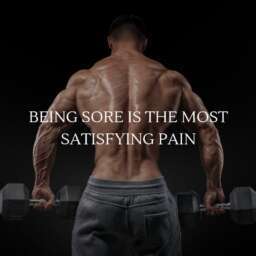
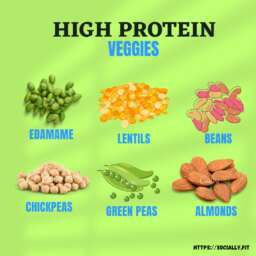
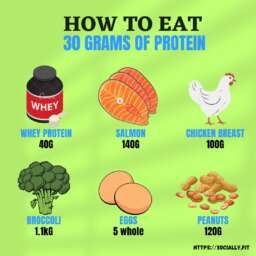
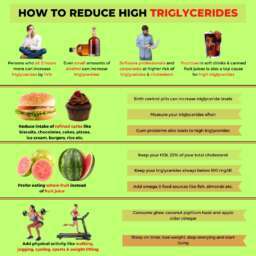
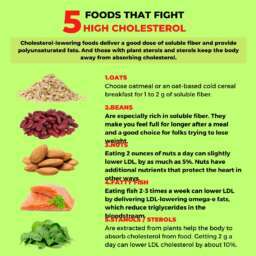
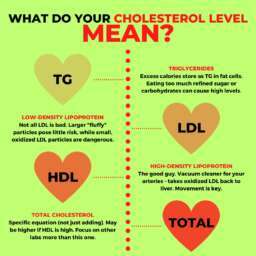


12 thoughts on “How long does Pre Workout Last?”